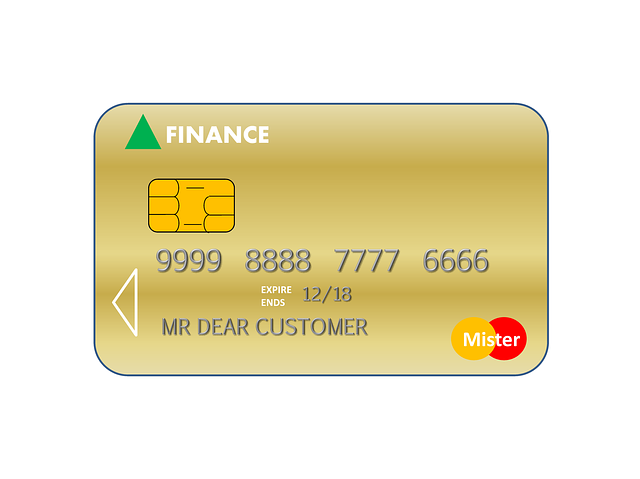Background checks for rental applications serve as a balancing act between landlords' need for security and tenants' privacy rights. Landlords use these checks to assess risk, while tenants provide information to ensure fair evaluation. The process involves verifying employment, income, criminal history, and rental references. Balancing security and privacy is key; landlords should only request relevant data, minimizing requests for sensitive information. This approach adheres to legal boundaries and fosters trust. Understanding this process empowers tenants, enabling them to grasp their rights, build positive rental histories, and engage in informed housing decisions. Transparency and regulation are essential to prevent discrimination and ensure fairness in background check practices.
In today’s world, landlords often utilize background checks as part of their rental application process. While these checks aim to ensure tenant safety, they raise important questions about individual rights and privacy. This article delves into the impact of background checks on tenant rights from a legal standpoint, exploring common misconceptions, balancing security needs with privacy concerns, and emphasizing the role of transparency and regulation in protecting tenants. Understanding these dynamics is crucial for both landlords and tenants navigating rental applications with background checks.
- Understanding Background Checks in Rental Applications
- The Impact on Tenant Rights: A Legal Perspective
- Balancing Security and Privacy Concerns
- Common Misconceptions about Background Check Practices
- Protecting Tenants: Role of Transparency and Regulation
Understanding Background Checks in Rental Applications

Background checks are a common part of the rental application process, aimed at helping landlords assess potential tenants. These thorough screenings involve verifying crucial information like employment history, credit scores, and criminal records. By employing background checks in rental applications, landlords aim to mitigate risk, ensuring their properties are occupied by responsible and reliable individuals.
Understanding the purpose behind these checks is essential for tenants as well. It’s not about stifling opportunities but rather creating a safe and secure living environment. Tenants should be aware that providing accurate information during the application process contributes to a fair evaluation. Knowing what landlords look for in background checks empowers tenants to present themselves in the best light, fostering transparency throughout the rental journey.
The Impact on Tenant Rights: A Legal Perspective

Background checks play a significant role in shaping tenant rights, particularly from a legal standpoint. When landlords conduct thorough background checks on rental applications, they aim to assess potential risks associated with renting to an individual or family. These checks can include verifying employment, income, criminal history, and rental references, providing landlords with valuable insights into a prospective tenant’s reliability.
From the tenant’s perspective, these background checks may impact their rights in several ways. While they ensure landlords make informed decisions, tenants might feel their privacy is invaded as personal information is scrutinized. Furthermore, a negative outcome from a background check could lead to denial of rental applications, potentially limiting housing options and exacerbating existing challenges for vulnerable populations, such as the homeless or those with past criminal records attempting to reintegrate into society.
Balancing Security and Privacy Concerns

Balancing security and privacy is a delicate act in the context of background checks for rental applications. While thorough screening is essential to protect landlords’ interests and ensure safe living environments, it must be conducted with respect for tenant privacy. Landlords have a legitimate interest in understanding potential risks, but they also need to adhere to legal boundaries and ethical practices.
Background checks provide valuable insights into an applicant’s history, but they should be limited to relevant information. Unnecessary intrusions into personal matters can create a sense of distrust and violation of civil liberties. As such, landlords should focus on verifying employment, rental history, and any criminal records that may impact safety, while minimizing requests for sensitive data not directly related to the tenancy.
Common Misconceptions about Background Check Practices

Many potential tenants hold misconceptions about how background check practices work and their impact on tenant rights. One common misunderstanding is that landlords solely rely on criminal records to deny or approve applications, leading people to believe that a single mistake or old offense could permanently bar them from renting. However, comprehensive background checks for rental applications go beyond criminal history. They often include credit checks, previous employment verification, and even inquiries about lifestyle choices that might indicate responsibility, such as utilities payments history.
Another misconception is that background checks infringe upon privacy rights. While it’s true that these checks can seem intrusive, they serve to protect both landlords and tenants. For landlords, they mitigate risks associated with tenant selection, while for tenants, they offer the chance to build a rental history, demonstrating their trustworthiness as responsible renters. Understanding these practices can help dispel fears and foster more informed discussions around tenant rights and responsibilities.
Protecting Tenants: Role of Transparency and Regulation

In the realm of tenant rights, protecting tenants goes beyond simply ensuring fair rental practices. Transparency and robust regulation play a pivotal role in safeguarding individuals’ interests during the rental application process, particularly when background checks are involved. Landlords conducting thorough background checks must be transparent about the types of information being sought and how it will be used, fostering trust among prospective tenants.
Regulations guiding background check procedures are essential to prevent discrimination and ensure fairness. Clear guidelines define what constitutes acceptable information, ensuring landlords adhere to legal boundaries. Transparent practices not only uphold ethical standards but also empower tenants to make informed decisions about their housing choices.






